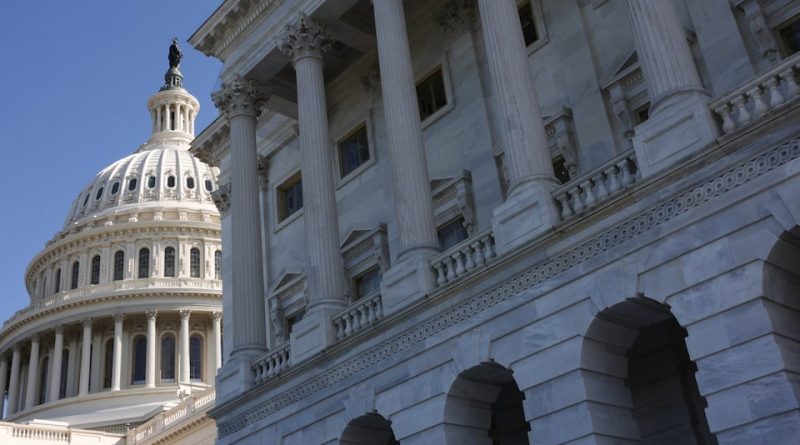U.S. Financial Regulators Show Resilience as Shutdown Unfolds
Despite furloughs at the SEC and CFTC, America’s financial system remains stable, with strong oversight safeguards and investor confidence holding firm.
The U.S. government’s partial shutdown has entered its first days, leading federal agencies to make rapid adjustments. Among the most visible changes is the impact on financial regulators, particularly the Securities and Exchange Commission (SEC) and the Commodity Futures Trading Commission (CFTC). Yet, despite the challenges of reduced staff and delayed processes, the response has been measured, efficient, and built upon strong systems designed to protect markets and investors.
The SEC, which normally oversees thousands of listed companies, exchanges, funds, and broker-dealers, has implemented a structured contingency plan that prioritizes emergency enforcement actions and critical market surveillance.
More than 90% of its workforce has been furloughed, leaving about 393 employees in place to ensure that essential functions are not disrupted. The emphasis on protecting investors and keeping markets transparent highlights the agency’s ability to adapt under pressure.
The CFTC, the key regulator for the vast U.S. derivatives market, is also operating with lean resources. Only 5.7% of its staff will remain active, focused on safeguarding market integrity and preventing fraud and abuse.
Even with reduced numbers, the commission has underscored its commitment to oversight.This approach sends a clear signal: U.S. regulators, even in moments of fiscal uncertainty, are prepared to shield markets from instability.
Markets have historically shown resilience during short-term shutdowns, and early signs suggest a similar pattern now. While some economic data releases may be delayed, investors continue to rely on alternative metrics, private research, and global indicators to track macroeconomic trends.
Analysts have pointed out that while the shutdown could create temporary volatility, the underlying strength of the U.S. financial system ensures long-term stability.
One immediate effect is the delay in the processing of new initial public offerings (IPOs). The SEC’s Division of Trading and Markets cannot review pending filings during the shutdown, creating a pause in what had been a modest revival of IPO activity.
Market specialists, however, note that such delays are temporary and will likely give companies more time to strengthen their offerings, leading to stronger debuts once the review process resumes. Samuel Kerr, head of equity capital markets at Mergermarket, explained that while investor sentiment may cool in the short term, confidence in the overall IPO pipeline remains intact.
Another area affected is the highly anticipated wave of crypto exchange-traded funds (ETFs), particularly those tied to Solana and XRP. Approval timelines may be extended, yet this delay has also been interpreted as an opportunity for regulators to ensure these products are thoroughly evaluated.
Despite furloughs at the SEC and CFTC, America’s financial system remains stable, with strong oversight safeguards and investor confidence holding firm.
Analysts suggest that once approved, the ETFs may benefit from renewed attention and pent-up investor demand, creating a more impactful market entry.
Despite these hurdles, Wall Street’s broader response has been calm. While futures and the U.S. dollar wavered briefly, gold surged to record highs, reflecting investors’ confidence in safe havens rather than panic. The fact that markets remain open, transparent, and operational is a testament to the institutional frameworks that underpin the American financial system.
The shutdown, while challenging, also highlights the resilience of U.S. democracy and governance. Regulatory agencies continue to function within constitutional limits, balancing fiscal constraints with their duty to protect the public.
For many observers, this is an example of how the rule of law and accountability remain at the heart of the American system. Political leaders on both sides of the aisle have expressed confidence that funding solutions will be reached, ensuring continuity and stability.
Looking ahead, experts believe that once the government reopens, the pace of IPOs, crypto ETF launches, and economic data reporting will accelerate to make up for lost time. Markets are already pricing in this recovery, showing faith in the system’s ability to rebound quickly.
In the end, while the furloughs at the SEC and CFTC illustrate the strain of a shutdown, they also demonstrate the country’s institutional preparedness. The American financial system, supported by regulators, investors, and policymakers, has shown time and again that it can withstand temporary disruptions.
The current moment is therefore not one of crisis, but of resilience. Investors, companies, and the public can be reassured that the system remains strong, safeguarded by decades of experience and a deep commitment to market integrity.



